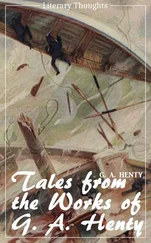The inspector smiled. “Quite right, doctor,” he replied. “And I seem to remember that business of the Floods Relief Committee.”
Dr. Butler made an aggressive grimace. “Yes, that was a very awkward business. We had very serious floods here a few years ago. A lot of damage was done, and some poor people rendered homeless. A fund was got up, and Sir Wilfred became Chairman of the Committee to administer it. But when the wretched sufferers applied for relief, he seemed to consider that unless they ordered their lives in accordance with his ideas, they were not entitled to it, which, not unnaturally, caused a lot of ill-feeling.
“However, we’re getting away from the point. I was saying that Sir Wilfred always knew what was best for other people. No doubt he thought that the seclusion of Mavis Court was the best thing for his niece. He had, I fancy, a lurking suspicion that if she were allowed too much rope, she might run off the rails in some way. Hereditary tendency, you know, and that sort of thing. Nobody’s affair but her own if she chose to make a fool of herself, of course. I can almost hear Sir Wilfred say so. But he wasn’t going to risk a second family scandal, for all that.”
All this, though it had no direct bearing on Sir Wilfred’s death, Arnold found very interesting. With a view to encouraging Dr. Butler’s confidences he asked provocatively, “Sir Wilfred seems to have been a man who was not afraid of making enemies?”
“Afraid?” the doctor replied. “I don’t believe he was afraid of anything, morally or physically. But I’m not so sure about making enemies. We none of us know how we arouse hostility in other people, unless we definitely set out to do so. And that Sir Wilfred never did. For one thing, he had a very strong sense of justice, and, for another, he had no time to waste in quarrelling with people. He was disliked by many people who didn’t know him properly, and who took offence at his rather overbearing manner. But I don’t believe that he had a really active enemy in the world.”
“You haven’t heard any rumours affecting his financial position, have you, doctor?” Arnold asked.
Dr. Butler shook his head. “Finance and business are a bit outside my scope,” he replied. “I’ve heard no rumours of the kind, but then it’s not likely that they would come to my ears. I gather that you are looking for something to support the idea that he committed suicide?”
“That’s about it, doctor. And I should be very grateful for the slightest hint.”
“I can’t help you, I’m afraid. You can take it from me that there’s no disreputable story behind it. No entanglements with women, or anything like that. For the rest, Sir Wilfred was a man of temperate, not to say frugal habits. You can trust a doctor to know something about his patients’ lives. I can tell you nothing about his business activities. But of this I feel sure. If he had a motive for killing himself, you won’t find that motive in Helverden.”
A few minutes later, Arnold and Marden left the doctor’s house and drove back to Stourford, where Arnold met the local superintendent. “I hardly know what to say, yet,” he replied, in answer to the latter’s inquiries. “Everything seems to point to suicide, but so far I haven’t been able to get any hint as to the motive. You knew him pretty well yourself, sir?”
“Yes, I’ve known him for a good many years, and always managed to get on with him. Between ourselves, he was a man I respected rather than liked. He wasn’t altogether the sort of character who inspires affection. And I can assure you that he would never have killed himself unless he had some very excellent reason for doing so. In the case of a man like Sir Wilfred, you and I needn’t believe in what is charitably known as temporary insanity.”
Arnold nodded. “There’s one point I should like your opinion upon, sir. You know that Mr. Marden found in the compartment an automatic with the initials W.S. upon it. It seems to me rather queer that a magistrate, the chairman of the Bench, in fact, should commit the offence of having a pistol in his possession without taking out a certificate for it. Especially as I understand that he has a certificate for two other weapons.”
“That’s a good point,” replied the superintendent approvingly. “I’ll give you my opinion willingly. Sir Wilfred was an excellent and conscientious magistrate, and I don’t think he made many mistakes while he was on the Bench. But he always gave me the impression that he considered himself as beyond the law. The law was an excellent thing, and he was a firm supporter of it. But it was made for other people, rather than for Sir Wilfred Saxonby.
“I don’t mean that he habitually broke the law, or even that I know of a single instance in which he did so. But I feel pretty certain that he would have had no scruple about breaking the law, if it suited his own higher convenience. He would not have felt himself bound by restrictions which, in other cases, he would have been the first to enforce.
“This being so, you will understand my opinion. If Sir Wilfred had acquired a pistol for any ordinary purpose, he would not have hesitated to take out a certificate for it. On the other hand, if he acquired it for some purpose to which it was essential that it should not be suspected that he had it, the omission to take out a certificate would not have troubled his conscience. Is that clear?”
“Perfectly clear, sir,” Arnold replied. He felt that he had now some idea of the dead man’s character. Two things remained to be done. To discover a motive which might have induced Sir Wilfred to take his own life, and to eliminate any possibility of the shot having been fired by some other hand. He parted from the superintendent and Marden, and returned to the railway station.
Arrived at the station, Arnold sought Mr. Cutbush in his office, to which, at his request, the booking clerk was summoned. The latter remembered perfectly selling Sir Wilfred a ticket on the previous morning. It had been a first-class day return to London. The return half of this ticket had not been handed in.
Having secured this information, Arnold took the next train, which happened to be a fast one, to Blackdown. During the journey, he pondered the question of the missing ticket. It was a trifling circumstance, as Marden had remarked. Anything might have happened. It might have fallen out of Sir Wilfred’s pocket while his body was being carried from the compartment to the waiting-room, for instance. But supposing it hadn’t? Suppose it had passed from Sir Wilfred’s possession between the times of his passing the barrier at Cannon Street and his arrival at Stourford. What then?
Arnold repeated the question to himself without finding any plausible answer. It was ridiculous to suggest that it had been stolen from Sir Wilfred, either before or after his death. Who would steal a railway ticket, and leave behind valuables and a sum of money? Besides, how could anybody have obtained access to the locked compartment? Easily enough, if they had a railway key. But could they have done so without attracting notice? It seemed highly improbable. Arnold decided that it would be necessary to interrogate the other twenty-four passengers who had travelled in the first-class coach.
His train arrived at the entrance to Blackdown Tunnel as he reached this decision. Before it had travelled many yards farther, the windows of his compartment were rendered opaque by a mixture of smoke and steam deposited on the outside. And the roar was certainly loud enough to drown the report of a small pistol. Arnold noted these things. He also timed the passage of the train through the tunnel. It took three minutes and twenty-five seconds. Allowing for the slowing up and acceleration, the train in which Sir Wilfred had been travelling must have taken at least five minutes. And a lot can happen in five minutes, as Arnold knew well enough.
Читать дальше












